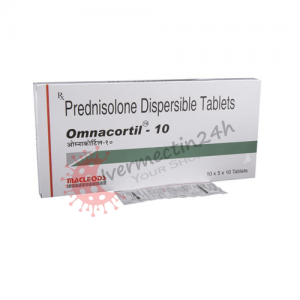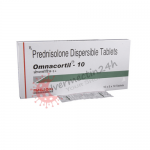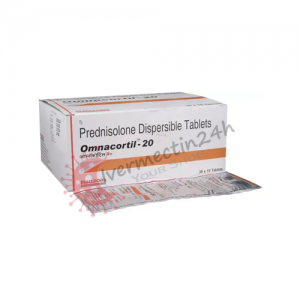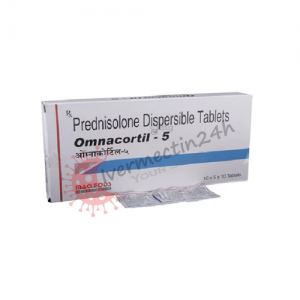How to Use Prednisone 10 mg:
Prednisone 10 mg can be used to treat diseases like blood disorders, arthritis breathing issues severe allergies skin conditions and cancer, eye issues and immune system problems. Prednisone 10 mg is part of a class of medications called corticosteroids. It lowers the immunity’s reaction to various ailments to lessen symptoms like the appearance of swelling and allergic reactions.
Prednisone 10 mg oral dosage:
Use your drug through the mouth in conjunction alongside milk or food, to avoid stomach upset, as instructed by your physician. The tablet version of this medication along with the full amount of liquid (8 8 ounces or 240 milliliters) or until your physician tells you to take a different dosage. If you’re using the liquid version that this medicine is available in, you must carefully take the dosage with a specific measuring device or spoon. Avoid using a regular spoon as you might not receive the right dosage. If you’re only prescribed 1 dose per day make sure you take it early in the morning, before 9 A.M.
Use this medication according to the instructions of your physician. Make sure you follow the dose schedule. The amount and duration of treatment are determined by the medical conditions you have and your response to treatment. If you’re taking the medication according to a different routine than a typical daily schedule (such for example, every second day) It might be beneficial to keep track of your schedule using an appointment.
Don’t stop using this medicine without consulting with your physician. Certain conditions could become more serious after the drug is abruptly removed. Additionally, you could be afflicted with symptoms like fatigue and weight loss as well as muscular pain, nausea and fatigue, headaches dizziness, and headache. To avoid these signs while you’re stopping the treatment Your doctor might lower your dosage slowly. Talk to your doctor as well as your pharmacist for more information. Inform your doctor of any symptoms that are becoming worse or more severe immediately.
Dose-related interactions with other drugs:
- Prednisone, an anticoagulant agent, can increase or decrease the effects of anticoagulants.
- Antidiabetic drugs: can increase blood glucose levels. Adjustments to the dosage of antiidiabetic drugs might be required.
- CYP 3A4 inducers and inhibitors can, in turn, reduce or increase the clearance of corticosteroids, requiring dose adjustments.
- Cyclosporine: increased activity of both both corticosteroid and cyclosporine, when given simultaneously. There has been reports of seizures in conjunction with the use of corticosteroid.
- Aspirin and salicylates are NSAIDs increased risk of adverse gastrointestinal consequences.






